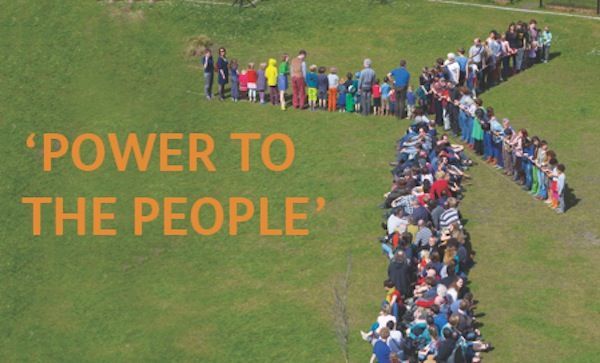
European co-operatives call for ambitious binding energy and climate targets. The International Co-operative Alliance’s regional organisation for Europe, Cooperatives Europe, described the framework proposed by the Commission in its White paper on the 2030 framework for climate and energy policies as “not ambitious enough”.
Cooperatives Europe thinks the lack of stimulation of the renewable energy sector will maintain the unbalanced situation between big utilities and energy co-operatives, since fossil fuel and other non-renewable utilities already hold a great proportion of the energy market. This is also likely to condemn Europe to remain imports-dependent, instead of adapting to the new energy realities by exploiting local sources through co-ops.
The package includes only one fully binding goal to cut emissions by 40% by 2030 as well as weaker EU-wide target on green energy, which would not oblige individual nations to act. According to Cooperatives Europe, the current package will undermine the long-term efforts for a green Europe by 2050.
On the other hand, this month the European Parliament voted to require member states to meet binding national targets on renewable energy, energy efficiency and greenhouse gas emissions.
The MEPs called for three binding targets for 2030: a 40% cut in greenhouse gases compared to 1990 levels, at least 30% of energy to come from renewable sources and a 40% improvement in energy efficiency. They also voted to require binding national renewable energy targets. In the Commission’s proposal, member states did not have any their own national target, as they do at the moment, for 2020.
These targets are stronger than the proposal from the European Commission last month. However, they are still below what Cooperatives Europe wanted. The organisation believes the renewable energy targets should be binding at national level to enhance the member states’ renewable energy potential.
Klaus Niederländer, Director of Cooperatives Europe, said: “Institutional Europe should better listen to its citizens, who have been the main driver of the energy transition. There is a large coalition of local and regional authorities, environmental NGOs, renewable energy co-operatives, community companies and technology providers, who will fight against the EU’s attempt to turn the clock back”.
Cooperatives Europe also recommends reforming the current ETS (EU Emissions Trading System), which allows the use of international certificates, as done by a number of European multinationals. The ETS was initially designed to stimulate renewable energy investments, but Cooperatives Europe believes it has failed to do so due to its rigidity and the imbalance between the supply and demand allowances. According to Cooperatives Europe, the surplus of two billion allowances created in 2011 and 2012 drowned the price of allowances.
Euro Coop, the European Community of Consumer Co-operatives also believes that the European Commission has failed to support a much-needed responsibility at country level as well as to provide investors with a long-term security perspective in the green energy sector.
The Commission's proposal eliminates national targets for renewables and does not set a new energy saving target. These two elements are particularly regretful for Euro Coop.
According to Euro Coop, consumer co-operatives are frontrunners in the field of energy efficiency, uptake of renewables as well as in the broad-ranging fight against climate change effects. Also, they strongly support a bottom-up approach to energy policies, in which consumers control and benefit from their own energy projects.
Euro Coop invites European leaders to reverse the trend set out in this new energy and climate framework so to put green, clean and democratic energy at the core of the EU climate and energy policies.
For more information read Euro Coop’s report “Climate Change and Consumer Co-operatives: Taking the Challenge forward”.




